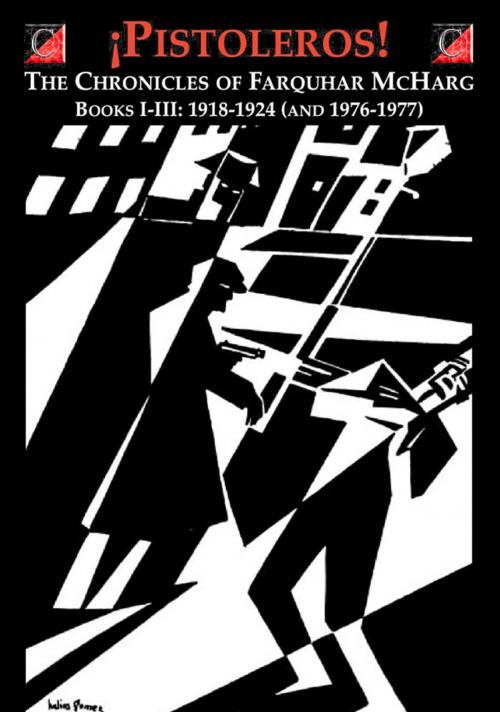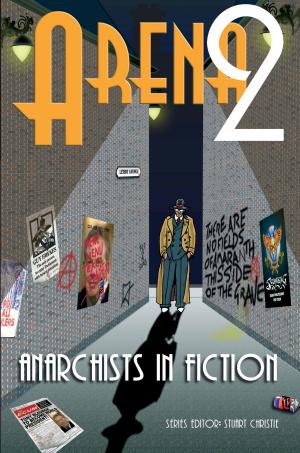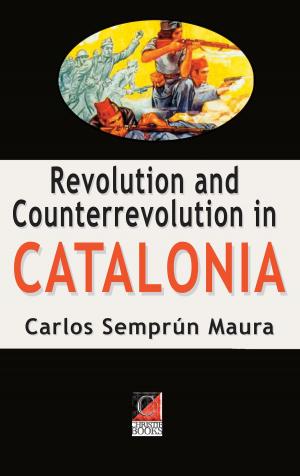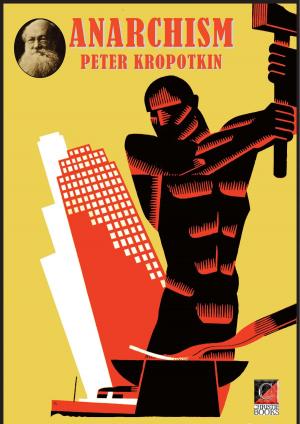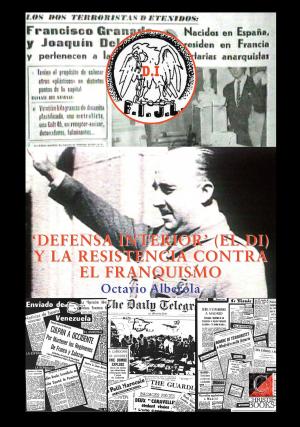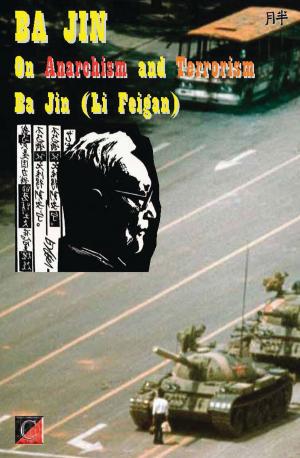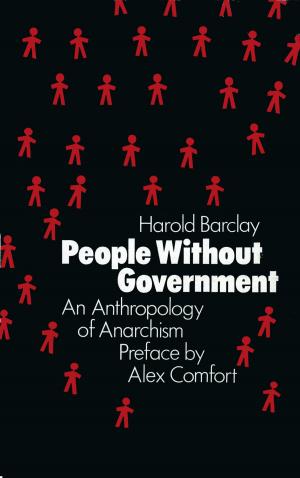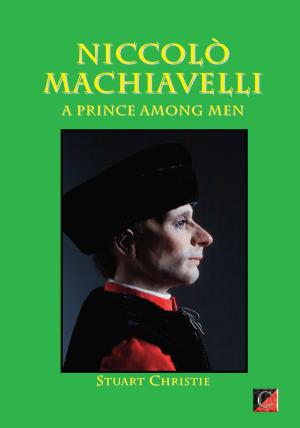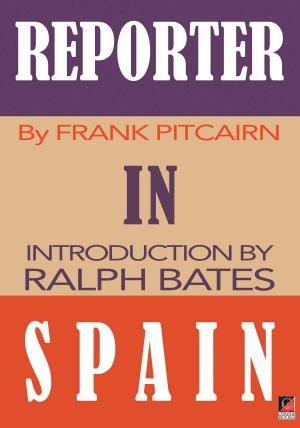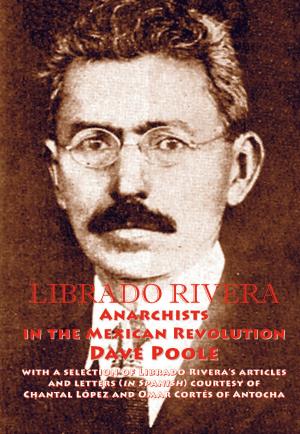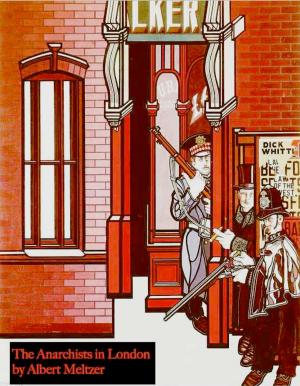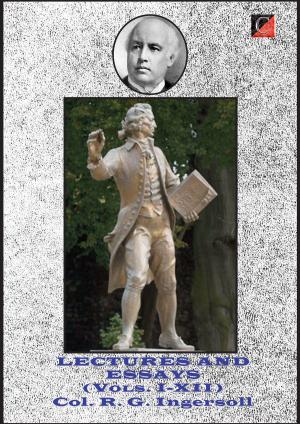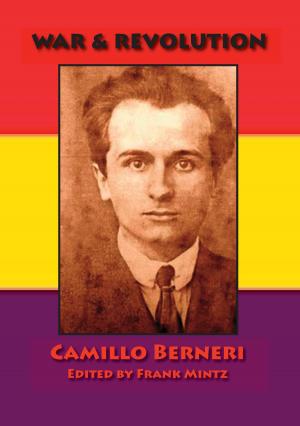¡Pistoleros! The Chronicles of Farquhar McHarg
Books I-III: 1918-1924 (and 1976-1977).
Fiction & Literature, Coming of Age, Action Suspense| Author: | Stuart Christie, Farquhar McHarg | ISBN: | 1230003077665 |
| Publisher: | ChristieBooks | Publication: | February 10, 2019 |
| Imprint: | ChristieBooks | Language: | English |
| Author: | Stuart Christie, Farquhar McHarg |
| ISBN: | 1230003077665 |
| Publisher: | ChristieBooks |
| Publication: | February 10, 2019 |
| Imprint: | ChristieBooks |
| Language: | English |
“¡PISTOLEROS! is the story of twentieth century anarchism as witnessed by McHarg, a Glaswegian anarchist engineer who became embroiled in Spanish revolutionary politics at the end of the First World War. Curiously echoing the editor Christie’s own life fifty years later, the youthful and naïve McHarg jumps ship in Barcelona and enlists with the CNT (the anarchist national workers union) in their struggle against the bosses proto-fascist murder squads and para-military catholic groups (which provided training for the likes of Franco in murder and suppression techniques). ¡Pistoleros! is written in the style of a genre thriller with all of the accompanying intrigues; double dealing spy networks, evil foreign agents, love and betrayal all framed within the romantic backdrop of post WW1 Barcelona —and in this way it’s is a gripping read, yet these characters and events are real, the colourful backdrop the grim reality of poverty versus the opulence and wealth of the Barcelona bourgeoisie.
Comments so far:
“HAVING known Farquhar McHarg in his prime, and despaired of him ever putting down on paper his extraordinary experiences, I am delighted that he has finally done so. Glasgow’s answer to Victor Serge has produced a document of remarkable value, so grippingly written that one might almost think it was a novel.” — Professor Paul Preston, historian, Hispanist and Principe de Asturias Professor of Contemporary Spanish Studies, LSE
“ASTONISHING—a new sort of history fiction or ‘doction’, thrilling to read and the most gripping illustrations I ever saw in one book—only wish the publisher had given them a full page each.” — Neal Ascherson, journalist, author, lecturer, screenwriter, editor of Public Archeology, and Visiting Professor at the Institute of Archaeology, University College, London.
“WHEN I was in Spain making Dr Zhivago I well remember a strikingly dashing and charismatic Scot who was working as an extra. His name was Farquhar and one night after shooting we spoke for hours in the bar. He said that he had been in a love with a woman called Lara. I recall that he had had a remarkable life and I told him that he should one day write it down. What a thrill to find out that he did so.” — Julie Christie, actor
“IT’S not quite the Farquhar I remember, but I can confirm he knew a girl called Lara because she was the sister of a lover of a very close acquaintance of mine. Her memories were, according to him, not untinged with bitterness. Not my business of course. And who knows what really went on ? I was told Lara found a certain revenge by running off with his false tooth (the original being knocked out, you'll recall, by a Fascist gun butt at the bakery siege in Barcelona). I got all this from 'Colonel' M.A.Pyatnitski who had been part of the aborted German aerial experiments of 1938 and have to admit he was a bit unreliable. His implacable hatred of anarchists coloured everything he told me.” — Michael Moorcock, author and musician
A YOUNG boy casts his fate with the wretched of the earth, leaps onto the back of the mad bull that will become the Twentieth Century, and holds on for dear life . . .’ — Bill Ayers, cofounder of the Weather Underground
"WRITTEN with tremendous brio, this is a passionate and gripping tale of an idealist's 'coming of age. McHarg’s gripping narrative convincingly taps the rich historical seams of intrigue, protest and conflict of an age in which many of the streets of Barcelona, like those of many other European cities, became stained with blood due to the struggle between the defenders of the established order and those who dreamed of overthrowing it." — Dr Chris Ealham, author of Class, Culture and Conflict in Barcelona 1898–1937
“THE first volume of memoirs from Farquhar McHarg, is a highly charged narrative that fires from the hip in its scattergun treatment of revolutionary politics. It made me think of Marx’s Herr Vogt meets Roddy Doyle’s A Star Called Henry. Punchy as a bare-knuckle boxer, the writing in this vivid ‘red noir’ captures the craziness and complexity of the period, as well as exploring the big issues of commitment, faith and violence. In its heady brew of poetry and polemics and its dynamic depiction of the anarchist version of revolution it also does what it says in the title, and offers an explosive account that is as anarchic as the worldview it espouses. A book you’d want to carry in your bandolier.” — Professor Willy Maley, Professor of Renaissance Studies, University of Glasgow
“A FACT-packed history of anarchist struggle against the Spanish Catholic Church and state written by a Glaswegian whose revolutionary syndicalism is felt to be partly the inheritance of ‘the Presbyterian and Covenanting tradition’ in which he was brought up. As such this instructive and entertaining memoir is not only both a kind of retrospective ‘prequel’ to the story and ideas of Stuart Christie’s excellent Granny Made me an Anarchist, but its Scottish antecedents also take in not only the anarchism of Guy Aldred, but the polemical and committed covenanting history of John Galt’s great novel Ringan Gilhaize.” — Tom Leonard, poet, professor and author of outside the narrative. Poems 1965-2009
"WHAT a remarkable and rollicking tale Farquar McHarg has to tell, one that will fascinate anyone interested in anarchy, life, love, Scotland, Spain and the world. When we met very briefly in the late sixties in Les Deux Magots in Paris, he kept a bunch of us entranced with his adventures—then he borrowed some francs off me to buy his round and must have lost his way back to the table for I never saw him again. What a treat to be able to read those stories in all their vivid historical splendour at last." — Duncan Campbell, journalist (The Guardian—former senior reporter, Los Angeles’ and crime correspondent), author of The Paradise Trail, and screenwriter
“¡PISTOLEROS! is the story of twentieth century anarchism as witnessed by McHarg, a Glaswegian anarchist engineer who became embroiled in Spanish revolutionary politics at the end of the First World War. Curiously echoing the editor Christie’s own life fifty years later, the youthful and naïve McHarg jumps ship in Barcelona and enlists with the CNT (the anarchist national workers union) in their struggle against the bosses proto-fascist murder squads and para-military catholic groups (which provided training for the likes of Franco in murder and suppression techniques). ¡Pistoleros! is written in the style of a genre thriller with all of the accompanying intrigues; double dealing spy networks, evil foreign agents, love and betrayal all framed within the romantic backdrop of post WW1 Barcelona —and in this way it’s is a gripping read, yet these characters and events are real, the colourful backdrop the grim reality of poverty versus the opulence and wealth of the Barcelona bourgeoisie.
Comments so far:
“HAVING known Farquhar McHarg in his prime, and despaired of him ever putting down on paper his extraordinary experiences, I am delighted that he has finally done so. Glasgow’s answer to Victor Serge has produced a document of remarkable value, so grippingly written that one might almost think it was a novel.” — Professor Paul Preston, historian, Hispanist and Principe de Asturias Professor of Contemporary Spanish Studies, LSE
“ASTONISHING—a new sort of history fiction or ‘doction’, thrilling to read and the most gripping illustrations I ever saw in one book—only wish the publisher had given them a full page each.” — Neal Ascherson, journalist, author, lecturer, screenwriter, editor of Public Archeology, and Visiting Professor at the Institute of Archaeology, University College, London.
“WHEN I was in Spain making Dr Zhivago I well remember a strikingly dashing and charismatic Scot who was working as an extra. His name was Farquhar and one night after shooting we spoke for hours in the bar. He said that he had been in a love with a woman called Lara. I recall that he had had a remarkable life and I told him that he should one day write it down. What a thrill to find out that he did so.” — Julie Christie, actor
“IT’S not quite the Farquhar I remember, but I can confirm he knew a girl called Lara because she was the sister of a lover of a very close acquaintance of mine. Her memories were, according to him, not untinged with bitterness. Not my business of course. And who knows what really went on ? I was told Lara found a certain revenge by running off with his false tooth (the original being knocked out, you'll recall, by a Fascist gun butt at the bakery siege in Barcelona). I got all this from 'Colonel' M.A.Pyatnitski who had been part of the aborted German aerial experiments of 1938 and have to admit he was a bit unreliable. His implacable hatred of anarchists coloured everything he told me.” — Michael Moorcock, author and musician
A YOUNG boy casts his fate with the wretched of the earth, leaps onto the back of the mad bull that will become the Twentieth Century, and holds on for dear life . . .’ — Bill Ayers, cofounder of the Weather Underground
"WRITTEN with tremendous brio, this is a passionate and gripping tale of an idealist's 'coming of age. McHarg’s gripping narrative convincingly taps the rich historical seams of intrigue, protest and conflict of an age in which many of the streets of Barcelona, like those of many other European cities, became stained with blood due to the struggle between the defenders of the established order and those who dreamed of overthrowing it." — Dr Chris Ealham, author of Class, Culture and Conflict in Barcelona 1898–1937
“THE first volume of memoirs from Farquhar McHarg, is a highly charged narrative that fires from the hip in its scattergun treatment of revolutionary politics. It made me think of Marx’s Herr Vogt meets Roddy Doyle’s A Star Called Henry. Punchy as a bare-knuckle boxer, the writing in this vivid ‘red noir’ captures the craziness and complexity of the period, as well as exploring the big issues of commitment, faith and violence. In its heady brew of poetry and polemics and its dynamic depiction of the anarchist version of revolution it also does what it says in the title, and offers an explosive account that is as anarchic as the worldview it espouses. A book you’d want to carry in your bandolier.” — Professor Willy Maley, Professor of Renaissance Studies, University of Glasgow
“A FACT-packed history of anarchist struggle against the Spanish Catholic Church and state written by a Glaswegian whose revolutionary syndicalism is felt to be partly the inheritance of ‘the Presbyterian and Covenanting tradition’ in which he was brought up. As such this instructive and entertaining memoir is not only both a kind of retrospective ‘prequel’ to the story and ideas of Stuart Christie’s excellent Granny Made me an Anarchist, but its Scottish antecedents also take in not only the anarchism of Guy Aldred, but the polemical and committed covenanting history of John Galt’s great novel Ringan Gilhaize.” — Tom Leonard, poet, professor and author of outside the narrative. Poems 1965-2009
"WHAT a remarkable and rollicking tale Farquar McHarg has to tell, one that will fascinate anyone interested in anarchy, life, love, Scotland, Spain and the world. When we met very briefly in the late sixties in Les Deux Magots in Paris, he kept a bunch of us entranced with his adventures—then he borrowed some francs off me to buy his round and must have lost his way back to the table for I never saw him again. What a treat to be able to read those stories in all their vivid historical splendour at last." — Duncan Campbell, journalist (The Guardian—former senior reporter, Los Angeles’ and crime correspondent), author of The Paradise Trail, and screenwriter
